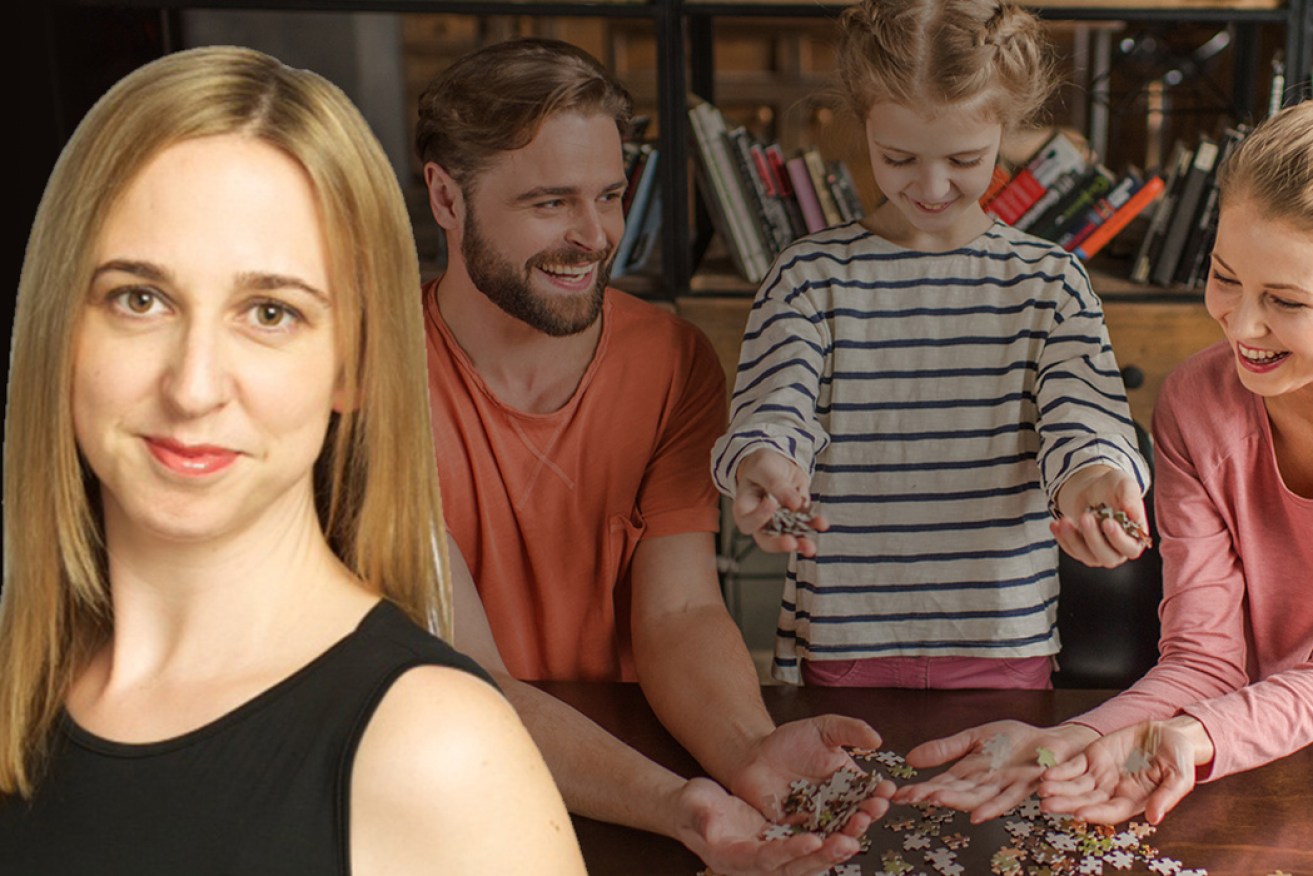Assumptions about life in coronavirus shutdown leave singles puzzled


Jill Stark wonders if Scott Morrison assumes everyone is in shutdown with their Hallmark card-worthy families. Photo: TND/ Getty
I don’t consider myself a lonely person.
I enjoy my own company, embrace the perks of living alone and rarely feel deprived by being single.
But in the age of coronavirus, I’m struggling.
There was a moment last week where it hit me: I might not touch another human for six months. Maybe even longer.
The realisation gave way to a profound sadness – a yearning that I felt deep into my bones.
The psychologists call this skin hunger.
Emotionally, we don’t do well with prolonged periods of physical isolation.
We have a primal need for connection.
Touch reduces stress and releases oxytocin, the feel-good ‘cuddle chemical’.
At this time of social distancing, everyone is feeling the loss of closeness to people they care about.
But for many who live alone, that loss is being felt more acutely.
Friends for Good, a Melbourne service tackling loneliness, has had a 200 per cent jump in calls to its helpline in recent weeks.
The rules in Victoria, where I live, state that for those living alone, we can only spend time with one friend if outdoors exercising and staying 1.5 metres apart.
I fully accept the need for these measures, but it’s a tough situation.
And it’s made tougher by the public messaging on how we should weather this storm.
At a recent press conference, the Prime Minister urged us to “keep your family close and together”.
Chief medical officer Brendan Murphy told Australians not to travel this Easter but “stay home with your family”.
These messages are well-meaning but completely erase the 2.3 million Australians who are living alone.
We’re not all hunkering down at home with family, doing jigsaw puzzles around the fireplace like a scene from a Hallmark Christmas card.
The assumption that we are only heightens the sense of isolation.
"Our kids are at home now, as are most kids, and Jenny went out yesterday and bought them a whole bunch of jigsaw puzzles." Scott Morrison gives jigsaw puzzles as an example of essential items to get households through the next six months. #auspol #covid19aus #qldpol pic.twitter.com/ZKU1oEfQb8
— David Marler (@Qldaah) March 29, 2020
I know that in these unsettling times, nobody has it easy. Constantly being around other people in close confinement – even if you love them – brings its own challenges.
I also know how lucky I am to have a job, my health, a safe place to call home, and a network of friends and family who I connect with daily.
Still, even as someone comfortable with time alone, I’ve been knocked by how hard this physical separation has been after just a few weeks.
On Zoom calls and FaceTime catch-ups I’ve winced watching workmates hug their kids, friends sharing space with housemates, or couples snuggling up together on the couch.
I’m craving physical closeness on a cellular level, in a way I’ve never experienced before.’’
At a time of high anxiety all I want is the reassurance of a hug.
Or just the simple comfort of spending time in the same room as another human.
I’ll be OK.
I’m adapting to this new normal, learning new ways to self-soothe, and reminding myself that this isolation is temporary.
But I worry about those who are crippled by loneliness and don’t know how to reach out for support.
So please check in with the people in your social circles or in your neighbourhood who live alone.
Particularly the elderly, but also younger people – even those who ordinarily seem pretty self-reliant.
Make that call. Send that text. Drop off some food or flowers or a handwritten note to say you care.
At a time when so much is outside of our control, looking after each other is the one thing we can do.
It sends a powerful message to anyone doing it tough that while you may be living on your own, you are not alone.
Jill Stark is a Melbourne-based journalist and author








